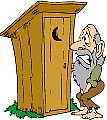do any cpaps have FAA approval labels ON THEM?
-
organicgirl
- Posts: 6
- Joined: Tue Jun 16, 2009 6:19 pm
- Location: New York, NY
do any cpaps have FAA approval labels ON THEM?
Hi-
Sorry for the repeat post. Just spoke to Aer Lingus and they will not allow me to bring any cpap on board for flight use unless it has on it an FAA approval label which states it's approved for flying. I called Resmed and they said their machines dont have approval labels. Anyone out there know if such a machine exists or is it just case by case- if your airline has approved certain models?
They won't accept a doctor's letter.
Please advise!
thanks very much!!
-Organic Girl
Sorry for the repeat post. Just spoke to Aer Lingus and they will not allow me to bring any cpap on board for flight use unless it has on it an FAA approval label which states it's approved for flying. I called Resmed and they said their machines dont have approval labels. Anyone out there know if such a machine exists or is it just case by case- if your airline has approved certain models?
They won't accept a doctor's letter.
Please advise!
thanks very much!!
-Organic Girl
Re: do any cpaps have FAA approval labels ON THEM?
Never seen one on any of the machines I have looked at. This may be one of those things that doesn't exist to keep you from using it without them saying no. If it did exist it would most likely be found on one of the battery powered portable machines. Maybe some one that has one of these machine might jump in here and let you know.
Jerry
Jerry
_________________
| Humidifier: HC150 Heated Humidifier With Hose, 2 Chambers and Stand |
| Additional Comments: 11cm/H2O, Encore Pro 1.8i, Pro Analyzer, Encore Viewer1.0 - 3 Remstar Pro2's, 1 Remstar Auto |
Life's journey is not to arrive at the grave safely in a well preserved body, but rather to skid in sideways, totally worn out, shouting: "Wow what a ride!"
I still play Cowboys and Bad Guys but now I use real bullets. CAS
I still play Cowboys and Bad Guys but now I use real bullets. CAS
Re: do any cpaps have FAA approval labels ON THEM?
airlines seem to approve CPAPs on a make and model basis, you could ask some other airlines if they approve yours
needless to say if you want to use the planes electricity you need a seat with a powerpoint, if you have a battery it will also need approval
the power is often 110volts AC
needless to say if you want to use the planes electricity you need a seat with a powerpoint, if you have a battery it will also need approval
the power is often 110volts AC
australian,anxiety and insomnia, a CPAP user since 1995, self diagnosed after years of fatigue, 2 cheap CPAPs and respironics comfortgell nose only mask. not one of my many doctors ever asked me if I snored
- BlackSpinner
- Posts: 9742
- Joined: Sat Apr 25, 2009 5:44 pm
- Location: Edmonton Alberta
- Contact:
Re: do any cpaps have FAA approval labels ON THEM?
It is allowed on the plane but you can't use it. It is a new regulation - very new.
Almost sounds like another way for the medical establishment to make more money.
I would almost want to say to the flight attendants that "I have a machine that will keep me alive while I sleep but I'm not allowed to use it on board, Is your CPR uptodate?"
Almost sounds like another way for the medical establishment to make more money.
I would almost want to say to the flight attendants that "I have a machine that will keep me alive while I sleep but I'm not allowed to use it on board, Is your CPR uptodate?"
_________________
| Machine: PR System One REMStar 60 Series Auto CPAP Machine |
| Additional Comments: Quatro mask for colds & flus S8 elite for back up |
71. The lame can ride on horseback, the one-handed drive cattle. The deaf, fight and be useful. To be blind is better than to be burnt on the pyre. No one gets good from a corpse. The Havamal
Re: do any cpaps have FAA approval labels ON THEM?
Good one, BlackSpinner!BlackSpinner wrote:I would almost want to say to the flight attendants that "I have a machine that will keep me alive while I sleep but I'm not allowed to use it on board, Is your CPR uptodate?"
DeVilbiss IntelliPap Std Plus with Smartflex; Transcend miniCPAP & Everest2 w/humidifier & batt for travel. UltraMirage FFM; PadACheeks; PaPillow. Using straight CPAP at 13.0/passover humidifier. AHI consistently < 1.5. Began CPAP 9/4/08.
Re: do any cpaps have FAA approval labels ON THEM?
very interesting.
thinking out loud here but if they fly us airspace then wouldn't they have to fly by faa rules?
another point to ponder - faa issues rules and regulations but doesn't a law trump a regulation or rule? seems maybe the americans with disability act should hold pecedent.
anyone got thoughts on this?
thinking out loud here but if they fly us airspace then wouldn't they have to fly by faa rules?
another point to ponder - faa issues rules and regulations but doesn't a law trump a regulation or rule? seems maybe the americans with disability act should hold pecedent.
anyone got thoughts on this?
- Silver Pelt
- Posts: 46
- Joined: Thu Jun 11, 2009 11:27 am
Re: do any cpaps have FAA approval labels ON THEM?
I have more than a little familiarity with the FARs (federal aviation regulations). The FAA rules govern safety of the flight and passengers; to my knowledge they don't address xPAP or assistive devices in general. They do have rules about oxygen and pressurized gasses because all airliners must provide oxygen to pilots and passengers if the cabin altitude (see below) exceeds certain limits. Even there, I think it is DOT rules that govern oxygen cylinders on airliners, not FARs. I could be wrong. The rules are voluminous and always changing, so I may have missed something, but I haven't heard of it. Some private pilots volunteer to take sick people in their airplanes to or from medical treatments, because the airlines won't let them fly in their condition, or with their equipment. So airlines can and do refuse to take some sick people and some disabled people.fuzzy96 wrote:very interesting.
thinking out loud here but if they fly us airspace then wouldn't they have to fly by faa rules?
another point to ponder - faa issues rules and regulations but doesn't a law trump a regulation or rule? seems maybe the americans with disability act should hold pecedent.
anyone got thoughts on this?
The "cabin altitude" of an airplane at cruising altitude is generally about 8000 feet. It can legally go as high as 12,500 feet, but rarely gets that high. You might want to check with your machine's manufacturer about whether it is capable of meeting your needs at an 8000 foot altitude. I see many machines say that they have altitude adjustment, but I don't see many who specify just how much altitude they can handle and still deliver x cm of pressure.
Here's an outline of the rules and lines of authority:
The airline is responsible for the safety of the flight, passengers, and crew, and own or lease the airplane. It is their property and their responsibility. They can exclude any equipment or cargo they don't want. They can exclude any passenger they don't want. The ADA is fine, but it does not trump the duty and right of the airline to provide a safe flight. If they think you or your machine is dangerous, they can and will prevent you from boarding. A court of law might someday rule in your favor, but the FAA isn't going to tell an airline to do something they think could be dangerous.
The FAA rules and federal law make the obedience to flight attendant instructions mandatory. You can be put into prison for disobeying them. Several people, mostly those who drink too much, have learned about this the hard way.
The captain has the final word once you are on the airplane. He can approve or deny pretty much anything. He's not going to throw his weight around just because he can, because he can and will be questioned on the ground, but his authority in flight is pretty much absolute. He can break any FAR and ignore any air traffic controller command if in his judgment it is necessary for the safety of the flight, such as landing his airplane in a river after the engines go out. (The Airbus 320 is not certified for water landings.)
Those are the rules. If Lufthansa won't allow your machine, and you really feel you must use it in flight, find another airline. If you just take it on the airplane, then nicely explain to the flight attendants that you need the use the machine, they may grant your request, or ask the captain. But you must do as they say.
My experience with Lufthansa is that they are rather inflexible. I'd find another airline if you really need to use the machine on your flight.
I also wouldn't bother calling airline offices ahead of time. You will get different answers from different people; they generally don't have an official policy, or know what it is if they do have one. No matter what they tell you, the flight attendant has the power to contradict them. Just take the machine on the airplane and ask the person with authority, the flight attendant. A polite explanation is probably your best bet, plus some knowledge of the cabin environment. You could mention that you understand about cabin altitude, and checked with the manufacturer.
You also need to think about your seatmates, if you aren't traveling with enough people to fill a bunch of seats. They could be put off or frightened by the sight and sound of the mask, hose, and machine. Some people on airplanes are rather jumpy. I think its silly, but if another passenger makes a stink, the flight attendants may feel they have no choice but to ask (tell) you to stop.
Good luck.
Re: do any cpaps have FAA approval labels ON THEM?
Lufthansa? Inflexible? Who would have thunk????
_________________
| Machine: DreamStation BiPAP® Auto Machine |
| Mask: DreamWear Nasal CPAP Mask with Headgear |
jeff
Re: do any cpaps have FAA approval labels ON THEM?
Lufthansa, who said anything about Lufthansa? Not the original poster, that's for sure.jdm2857 wrote:Lufthansa? Inflexible? Who would have thunk????
_________________
| Mask: Swift™ FX Nasal Pillow CPAP Mask with Headgear |
| Additional Comments: CPAP Rx pressure=7.0, APAP set at 8.0 to 12.0; AFlex setting=1; Humidifier setting=1 |
Bob & Betsy - USN Ret'd '78 & FL LEO Ret'd '03 & "Oath Keeper forever"
'05 HR Endeavor 40PRQ, 400 Cummins, our home.
69 years old and back working in the oil patch, to survive retirement, in the current economy.
'05 HR Endeavor 40PRQ, 400 Cummins, our home.
69 years old and back working in the oil patch, to survive retirement, in the current economy.
- billbolton
- Posts: 2264
- Joined: Wed Jun 07, 2006 7:46 pm
- Location: Sydney, Australia
Re: do any cpaps have FAA approval labels ON THEM?
Basically you are mostly out of luck right now in terms of offical things you might do..
The FAA in the USA has issued new regulations in Mid-May 2009 which impact the use of CPAP machine on flights covered by FAA regulations....
Unless an airline has already tested and established a list of approved CPAP kit for themselves, as per AC 91.21-1 (which only a very few airlines have done... see http://www.qantas.com.au/infodetail/fly ... diform.pdf), there is no CPAP kit yet that has been through an approval process that basically didn't apply until a month or so ago.
IMO, I'd just take the CPAP on board unannounced and just try to use it when everything is quiet in the cabin (that is meal service etc is over and the flight attendents are only doing occassional "patrols" through the cabin). They worst they can do is tell you not to use it (and if they do tell you that, don't try to argue, as you could end up on a proscribed passenger list for all airlines). It helps a lot in those circumstances if you have battery power for your CPAP and do not need to ask the cabin crew for any assistance.
I have employed that strategy a few times where I couldn't get a specific statement from an airline that it was OK to use CPAP in flight, and only once was I specifically asked to desist by the cabin crew (that was on an Emirates flight).
If worst comes to worst, and I know beforehand that I am simply not able to use my CPAP in flight, I usually arrange my travel so that I stay awake during the flight and check into an on-airport hotel immediately on arrival, to get some good quality "real-bed" sleep. Keep in mind that even if the airline allows you to use CPAP in-flight and you have your own battery (etc, etc) there are still numerous circumstances, such as poor flight weather/turbulance conditions or even just the passenger in the next seat, that can make sleeping on an aircraft problematic!
Cheers,
Bill
The FAA in the USA has issued new regulations in Mid-May 2009 which impact the use of CPAP machine on flights covered by FAA regulations....
- http://www.faa.gov/about/initiatives/ca ... le_oxygen/
http://www.faa.gov/other_visit/aviation ... o09006.pdf
The relevant part for CPAP users is this...
- B. Other Respiratory Devices. All POC [Portable Oxygen Concentrators] manufacturers are knowledgeable regarding aviation requirements for POCs . POCs are in common use on air carriers. All currently FAA-approved POCs meet FAA requirements for M-PEDs.
However, this is not the case for other respiratory assistive devices (ventilators, respirators and CPAP machines). For other devices that have not been tested by the manufacturer to meet the emission levels in the RTCA standard, air carriers can continue to use the current guidance in AC 91.21-1. In many situations, this requires case-by-case testing of a particular device and a determination by the air carrier that the device can be operated safely on their aircraft
- B. Other Respiratory Devices. All POC [Portable Oxygen Concentrators] manufacturers are knowledgeable regarding aviation requirements for POCs . POCs are in common use on air carriers. All currently FAA-approved POCs meet FAA requirements for M-PEDs.
Unless an airline has already tested and established a list of approved CPAP kit for themselves, as per AC 91.21-1 (which only a very few airlines have done... see http://www.qantas.com.au/infodetail/fly ... diform.pdf), there is no CPAP kit yet that has been through an approval process that basically didn't apply until a month or so ago.
If you even hint to any airline that you might be a medical flight risk, there is a chance they may not allow you to fly at all... so don't do that!organicgirl wrote:What would you recommend? should I contact the FAA.. ? american disabilities? or just sneak it on board.. or alarm them that I will not be able to breathe and be a medical risk to them if I fly without it.
IMO, I'd just take the CPAP on board unannounced and just try to use it when everything is quiet in the cabin (that is meal service etc is over and the flight attendents are only doing occassional "patrols" through the cabin). They worst they can do is tell you not to use it (and if they do tell you that, don't try to argue, as you could end up on a proscribed passenger list for all airlines). It helps a lot in those circumstances if you have battery power for your CPAP and do not need to ask the cabin crew for any assistance.
I have employed that strategy a few times where I couldn't get a specific statement from an airline that it was OK to use CPAP in flight, and only once was I specifically asked to desist by the cabin crew (that was on an Emirates flight).
If worst comes to worst, and I know beforehand that I am simply not able to use my CPAP in flight, I usually arrange my travel so that I stay awake during the flight and check into an on-airport hotel immediately on arrival, to get some good quality "real-bed" sleep. Keep in mind that even if the airline allows you to use CPAP in-flight and you have your own battery (etc, etc) there are still numerous circumstances, such as poor flight weather/turbulance conditions or even just the passenger in the next seat, that can make sleeping on an aircraft problematic!
Cheers,
Bill
Re: do any cpaps have FAA approval labels ON THEM?
Did you read the post above mine?
_________________
| Machine: DreamStation BiPAP® Auto Machine |
| Mask: DreamWear Nasal CPAP Mask with Headgear |
jeff
- apnez
- Posts: 88
- Joined: Wed Mar 04, 2009 10:20 am
- Location: Mont Tremblant region, Quebec, Canada
- Contact:
Re: do any cpaps have FAA approval labels ON THEM?
The air carrier is NOT Lufthansa! The question was about Aer Lingus which is the Irish national air carrier. Irish NOT German.
No doubt that CPAP will never be FAA approved as the main purpose of that equipment is not to be used during a flight. Same thing for electric razors! Manufacturers won't spent a dime on that. David Clark, Icom and Garmin will do but not ResMed or Philips!
No doubt that CPAP will never be FAA approved as the main purpose of that equipment is not to be used during a flight. Same thing for electric razors! Manufacturers won't spent a dime on that. David Clark, Icom and Garmin will do but not ResMed or Philips!
_________________
| Mask: Mirage Activa™ LT Nasal CPAP Mask with Headgear |
| Additional Comments: Since 04-08-2009 -Titration: 12cmH2O -APAP 10.2-14.2 -EPR 1 -Alternate: OptiLife Nasal C. -Ultra Mirage F. F. -Oximeter CMS-50E |
-
Bearded_One
- Posts: 597
- Joined: Fri Nov 17, 2006 9:35 am
- Location: Northern Virginia, near DC
Re: do any cpaps have FAA approval labels ON THEM?
The specs for both the basic IntelliPAP and the auto IntelliPAP show that they auto compensate for altitude up to 9.000 feet.
Re: do any cpaps have FAA approval labels ON THEM?
My ResMed S8 Escape can be manually set to 8500 feet altitude.
ResMed S9 range 9.8-17, RespCare Hybrid FFM
Never, never, never, never say never.
Never, never, never, never say never.
- billbolton
- Posts: 2264
- Joined: Wed Jun 07, 2006 7:46 pm
- Location: Sydney, Australia
Re: do any cpaps have FAA approval labels ON THEM?
Nearly all CPAP kit manufactured within the current century has manual or automatic altitude adjustment up ~2400 Metres. Since a relatively small percentage of the entire human population actually reside at those sorts of altitudes, that particular upper limit is cleary there specifically to cope with operation in the pressurised cabins of aircraft.Muse-Inc wrote:My ResMed S8 Escape can be manually set to 8500 feet altitude.
Cheers,
Bill



















